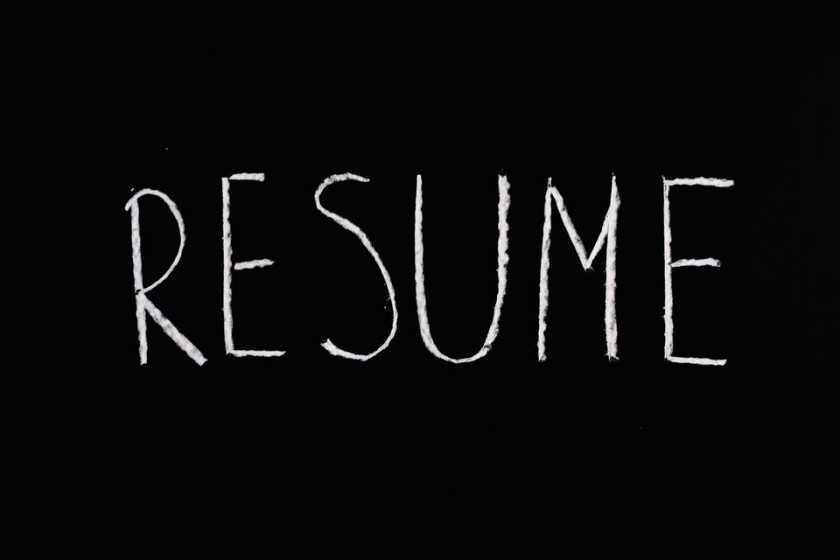
Your résumé provides employers with a first look at who you are and what you may be able to contribute to their organization. When your faith is an integral part of your identity, you may wonder whether information about your religious preferences and activities should be disclosed to a future employer on your résumé. Common questions about addressing religion on a résumé include:
- Can I share experience gained through employment or volunteer work with a faith-based organization or club?
- What is the best way to communicate relevant religious activities and experiences?
- I don’t want to surprise a new employer with requests for religious accommodations at work or time off for observances and holidays – should I mention these needs from the outset?
While it is illegal to discriminate on the basis of religion, the reality is that sharing your religious affiliation on your résumé could potentially harm your search for employment. However, there are also circumstances where sharing your religious experience can be an excellent addition to your résumé, particularly when showcasing skills that you’ve gained.
Deciding whether or not to disclose your religious experience in your résumé is a personal choice. Here are several factors to consider when making the decision that’s right for you.
- Your résumé is a marketing tool. Résumés are used to showcase relevant experiences, skills, and accomplishments to a prospective employer. The average hiring manager spends a maximum of 10 seconds reviewing a résumé before deciding whether to move on or move forward. Therefore, it is important to be strategic about the content you decide to include. Résumés should be concise, tailored to each employer and position, and directly demonstrate your unique qualifications. Every piece of information included on your résumé (related to religion or otherwise) should be relevant to your goal and add value in demonstrating that you are a qualified candidate.
When deciding whether to include information about your religious affiliation or experience, ask yourself:
- Is this information relevant to the position?
- Will this information add value in determining my qualifications for the role?
Relevant experience gained from time spent working or volunteering with a faith-based organization or club can be incredibly beneficial on your résumé in demonstrating your ability to execute the desired duties. On the other hand, sharing your personal religious views does not communicate your professional strengths or abilities to an employer and should not be included on your résumé.
- Research the Employer. Before disclosing information about religion on your résumé, research the employer to gain a sense of how they handle religious inclusion in the workplace. Does the company appear receptive to requests for religious accommodations? Does the company sponsor religious ERGs (Employee Resource Groups)? Is the company located in a region that typically responds positively to religious disclosure in the workplace? Getting to know the employer not only helps guide your résumé but may impact your interest in working for the company. (For more information on how to assess religious inclusion in the workplace, check out this article.)
Identifying your relationship with religion on your résumé could be a turn off for some employers. Some employers may harbor personal biases or fears about people who decide to reveal their religious beliefs or non-beliefs on their résumé. They may assume that candidates who mention religion up front in their résumé may be more likely to discuss ‘hot button topics’ in the workplace, leading to potential conflicts.
It is typically recommended to exclude all possible bias-inducing information from your résumé. However, there are several circumstances where you may want to include information pertaining to your religious experiences:
- When your work or volunteer experiences involve faith-based organizations. Include these relevant experiences, but keep the emphasis on your skills and not on your religion.
- When applying to a faith-based organization that aligns with your practice, listing relevant religious experience and understanding on your résumé could work to your benefit.
- You have researched companies with the distinct purpose of locating potential employers who support your religious beliefs.
- Requests for religious accommodations. There is no set deadline for requesting religious accommodations with an employer. While you should provide reasonable advanced notice for any accommodations you may need, such requests should not be included on your résumé.
Religion is an important way in which people define themselves. If including religious affiliation or activities on your résumé is the right choice for you, here are a few tips to keep in mind when creating your content.
- Keep the focus on your skills and abilities, not your views. Be sure to emphasize the professional accomplishments and experiences which qualify you for the opportunity, and not your personal views. Ultimately, employers are looking for information about your ability to perform the duties of the position. If you were involved with a religious organization or club, feel free to share the skills you gained as a result of your involvement. Examples include soft skills such as communication or leadership, or more targeted skills related to the role such as event planning or research.
- Write to your audience. Be sure that your experiences are written in a way that can be easily understood by someone who is not familiar with your religious affiliation. Altering your language does not mean you are abandoning your beliefs, only that you are focusing on the relevant aspects of your religious experience.
- Seek a second opinion. If you aren’t sure whether certain information should be included in your résumé, seek a second opinion. If a second opinion is not available, play it safe and omit that piece of information. When in doubt, leave it out.
For further support with addressing religion on your résumé, schedule an appointment with a Career Coach at the UConn Center for Career Development.
